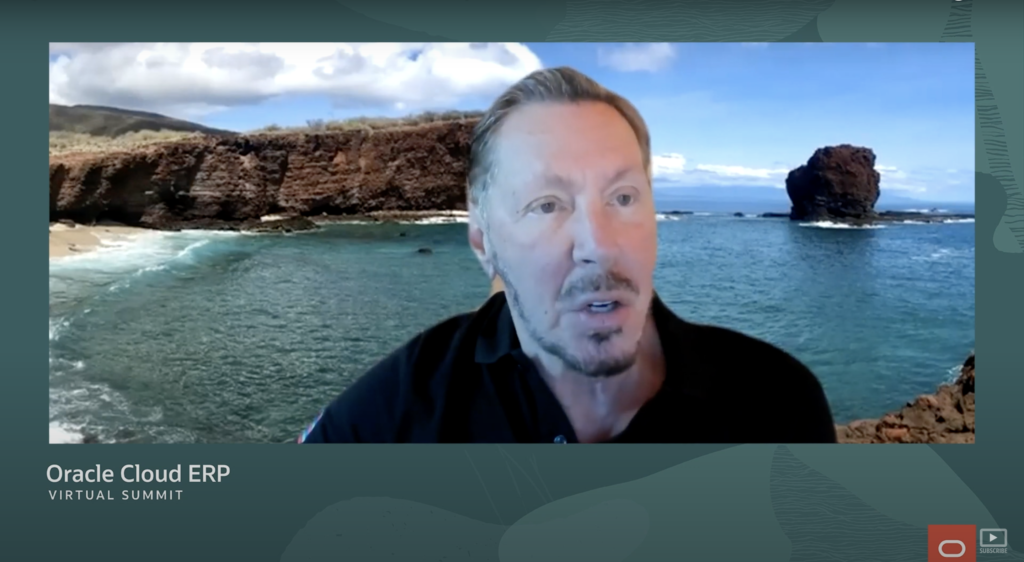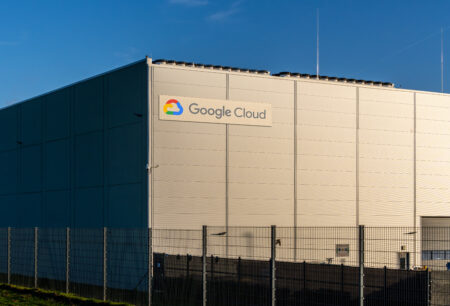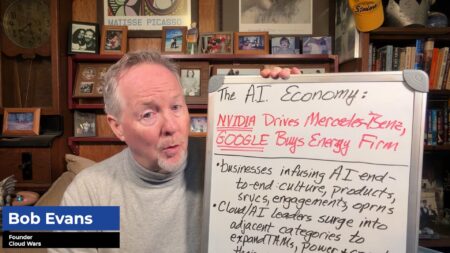As thousands of Oracle ERP customers move to the cloud and as Oracle enriches its cloud-based Fusion ERP applications with industry-specific capabilities, Oracle’s ERP business should exceed $30 billion within the next 5 years, says chairman Larry Ellison.
On my weekly Cloud Wars Top 10 rankings, Oracle is #6.
In last week’s fiscal-Q2 earnings call, Ellison wove together two emerging trends that he says will inexorably lead to Oracle building a massive cloud-ERP business that he believes will surely reach $20 billion and could even surpass $30 billion:
- the customer dynamics that point to a massive migration of up to 7,500 on-prem Oracle ERP customers to Fusion ERP; and
- the booming appetite among businesses of every type for industry-specific solutions, which Oracle plans to enmesh around a Fusion ERP core.
Ellison’s grand plan blends some of the old—vast numbers of business customers jumping from on-premises into the cloud—with the new: the surging demand for purpose-built industry-specific solutions that provide greater specificity to help businesses optimize an entirely new generation of processes built for the digital economy and capable of harnessing the full power of data.
The great ERP migration
On the migration side, Ellison said 8,500 customers have purchased Oracle’s various legacy ERP applications: E-Business Suite, JD Edwards, and PeopleSoft. Of those 8,500, he said, only 1,000 have moved so far to Fusion ERP, which means that 7,500 are moving into the red-hot prospect category.
“Those are all new customers,” Ellison said in an extended discussion about his ERP vision during the Dec. 9 earnings call.
“Add to that our 28,000 NetSuite ERP customers and that means Oracle could have a total of 35,500 cloud ERP customers that are new to Oracle. Only 1,000 of our on-premises installed base have migrated so far.”
Ellison then switched his focus from the sheer number of customers that could migrate to Fusion ERP to the potential revenue of the cloud ERP business for Oracle. He noted that it’s roughly a $5-billion business now on an annualized basis with a growth rate of about 30%, and that in addition to the 7,500 Oracle on-prem customers that have not yet moved to the cloud, there are lots of competitors’ customers to pursue as well.
“So let’s look out five years and ask the question, how big will we be in five years? I think the numbers are going to be approaching $20 billion in cloud ERP, where the majority of those customers are not migrating from Oracle’s on-prem business but instead are migrating from other people’s on-prem business, whether it’s a small company like Infor or a large company like SAP or a variety of other companies,” Ellison said.
A few minutes later, however, Ellison bumped up his estimate significantly from $20 billion because of the potential of a new category of digital-business solutions with Fusion ERP at the core surrounded by a tightly integrated set of industry-specific solutions.
And to me, this is the real heart of the matter for (a) the business customers looking to leverage modern cloud technology to thrive in the digital economy and (b) the cloud providers competing savagely for the enormous revenues the leaders will surely grab.
“Before I describe those capabilities, I have a confession to make,” Ellison said, although I have to say he sounded more giddy than contrite.
“I don’t believe we are on our way to building a $20 billion cloud ERP business in five years because in fact I think it’s going to be a lot bigger than that,” he added.
“As more and more companies adopt and run Oracle Cloud ERP, ask the question, ‘What does a B2B procurement transaction look like?’ In other words, how does it work when one Oracle Cloud ERP system is talking to another Oracle Cloud ERP system and placing an order?,” Ellison said.
In Ellison’s view, what that looks like is a whole new generation of industry solutions tightly integrated with Fusion ERP to deliver capabilities that far transcend what current or past ERP systems could offer.
“We are working in concert with our banking and logistics partners to originate purchase financing, product shipment, delivery tracking, invoicing and payments right inside the two transacting Oracle Cloud ERP procurement systems,” he said.
“Oracle Cloud ERP will soon bring an entirely new level of automation to B2B commerce, one that very much resembles the ease of doing business and efficiency of B2C e-commerce. This new ERP automation system with all these new capabilities will dramatically simplify our customers’ procurement and supply-chain processes.
“And as such, it represents a huge new opportunity for Oracle to grow its Cloud ERP ecosystem.”
This is the sort of astonishing new-age digital innovation that makes me think that the Cloud Wars in 2022 and 2023 will make those of 2020 and 2021 seem in comparison like holiday picnics. So lace ‘em up tight!








